Epigenetic Clocks Predict Disease 30 Years Early
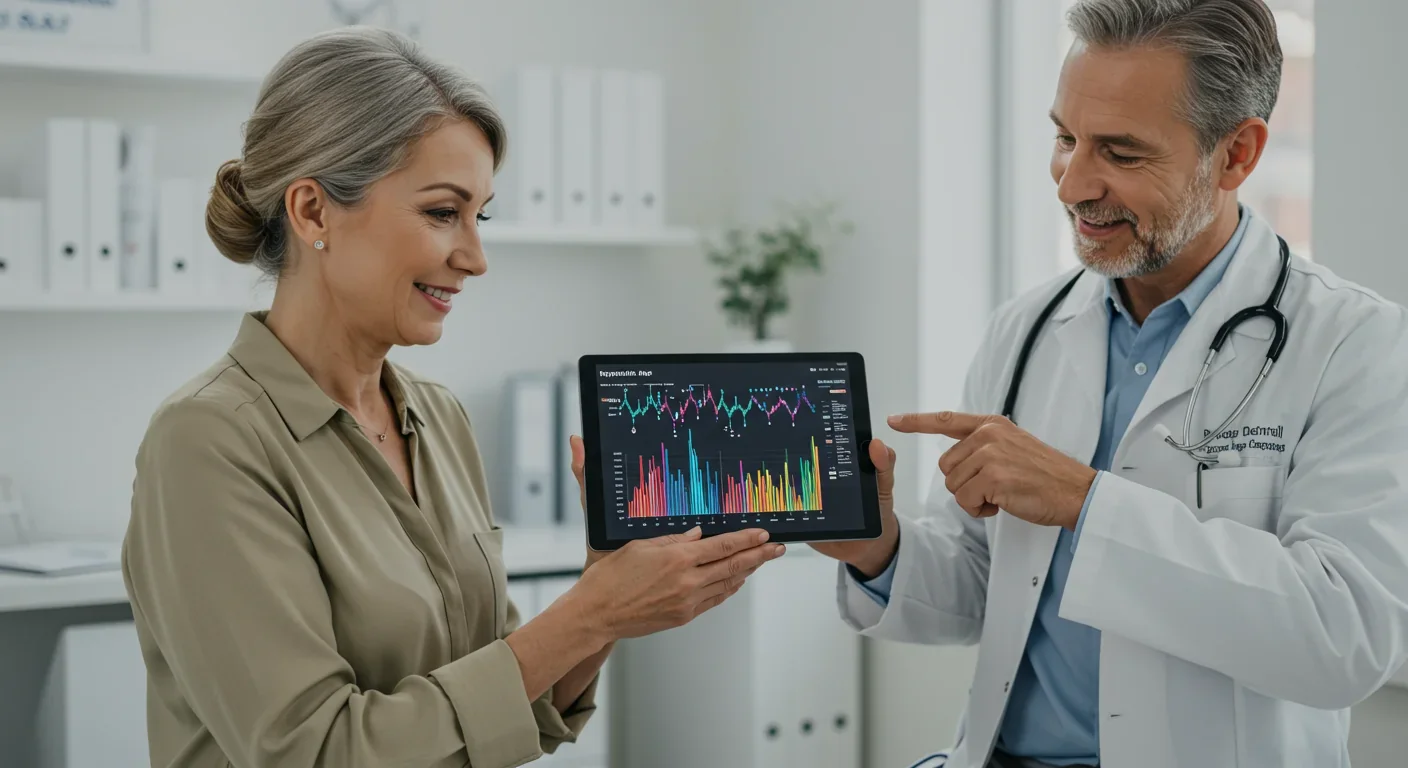
TL;DR: Your expectations can literally change your brain chemistry. The placebo effect triggers real biochemical responses through neural networks, producing measurable improvements in chronic pain, depression, and other conditions—even when patients know they're receiving inactive treatments.
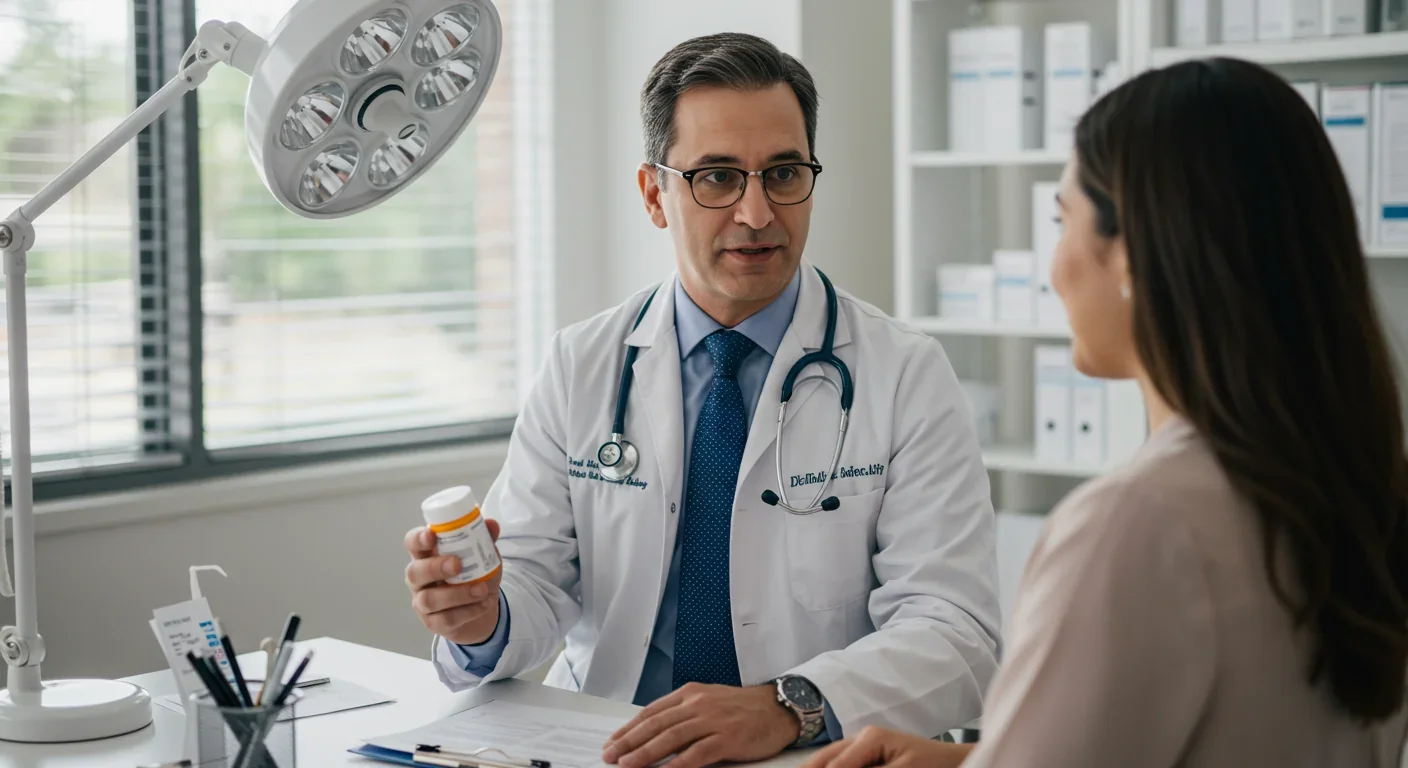
Your expectations can change your brain chemistry. That's not motivational fluff or wishful thinking—it's established neuroscience. The placebo effect, once dismissed as experimental noise, has emerged as one of medicine's most fascinating frontiers. Understanding how it works could revolutionize how we approach pain, depression, and even immune function.
The term "placebo" comes from Latin, meaning "I shall please." For decades, doctors viewed placebos as inert controls in clinical trials—sugar pills that did nothing. But researchers noticed something strange: patients taking these fake treatments often improved. Not just a little. Sometimes dramatically.
In Parkinson's disease studies, patients told they had a 75% chance of receiving a new drug produced significant dopamine in their brains—even when they received only saline. Their neurons fired, their tremors eased, and their symptoms improved because their brains believed relief was coming.
This wasn't wishful thinking creating an illusion of improvement. It was expectation triggering measurable biochemical changes.
When you expect relief, your brain doesn't just sit there hoping. It activates specific neural networks that produce real physiological changes. Recent meta-analysis research shows that placebo responses primarily engage the right dorsolateral prefrontal cortex—a region involved in cognitive control and expectation management.
This is different from conscious reappraisal, which activates the left side of that same brain region. The distinction matters: placebo isn't just "thinking positive thoughts." It's an involuntary neurological response to anticipated treatment.
The mechanism involves multiple brain systems working in concert. Your prefrontal cortex sends signals that trigger the release of endogenous opioids—your body's natural painkillers. These aren't imaginary. They're the same molecules that make morphine work, except your brain manufactures them in response to expectation.
Studies tracking brain activity reveal that placebo analgesia produces patterns remarkably similar to active pain medication. Your neurons reduce pain signaling, your mood improves, and inflammatory markers can even decline—all because your brain anticipated healing.
Chronic pain affects millions globally, and traditional treatments often fall short. Enter an unlikely ally: carefully designed placebo interventions that harness expectation without deception.
A comprehensive network analysis of 45 randomized controlled trials involving 8,287 participants revealed something remarkable about sham acupuncture. Different types of fake acupuncture produced different levels of pain relief. Non-penetrating sham needles produced modest effects, but procedures that mimicked real treatment more convincingly generated substantial pain reduction.
The waiting treatment group showed a mean pain reduction difference of 1.86 points compared to genuine acupuncture—meaning a significant portion of acupuncture's benefit comes from expectation and ritual, not needle placement. This doesn't invalidate acupuncture; it highlights how powerful mind-body mechanisms can be when properly activated.
What works for one person may not work for another. Placebo responses vary wildly based on previous experiences, cultural context, and individual brain chemistry. Some people are "placebo responders" who consistently show strong effects, while others show minimal responses regardless of expectation.
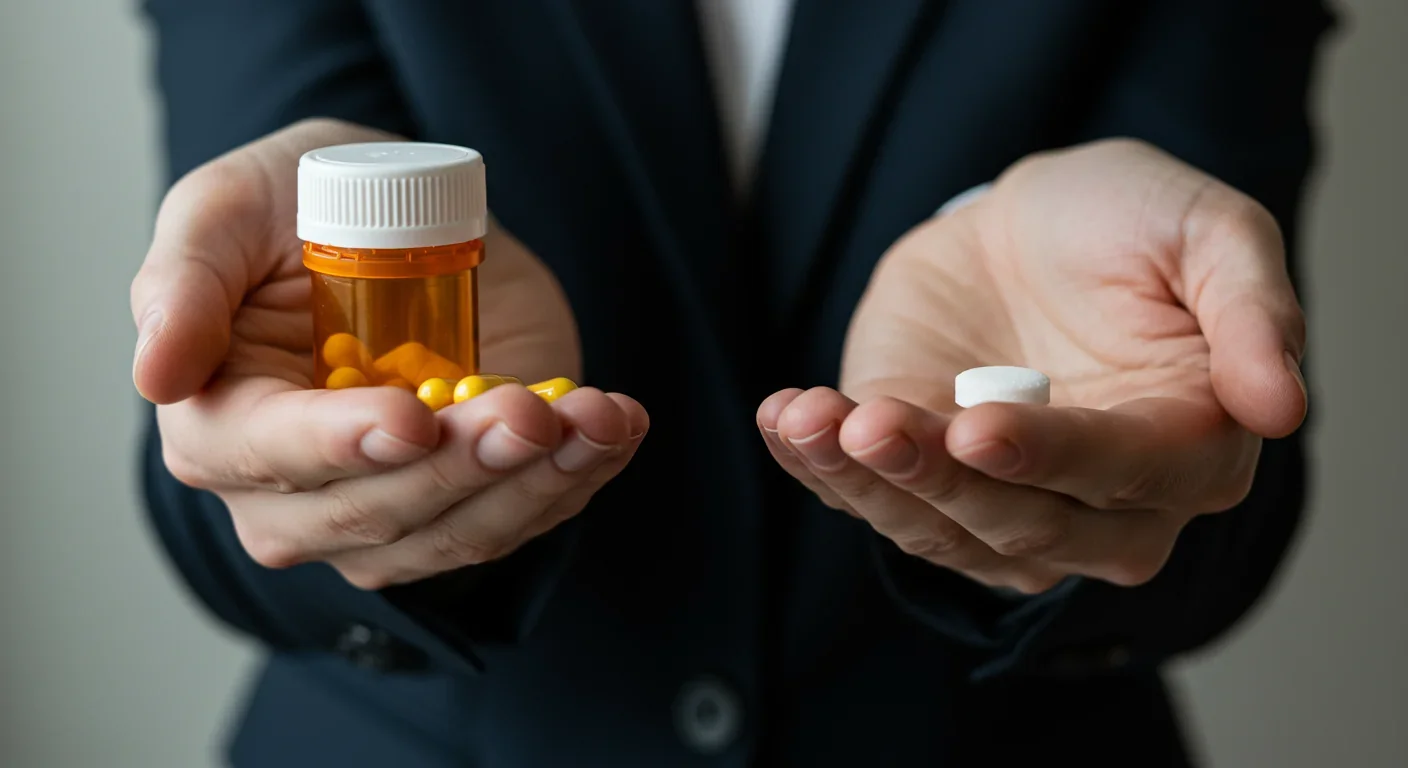
If positive expectations can heal, negative expectations can harm. This is the nocebo effect—the placebo's evil twin.
In a groundbreaking study of contraceptive pill users, 97% of women reported at least one side effect, and nearly half discontinued use within 18 months. The strongest predictor wasn't the medication itself—it was negative expectations from the outset, combined with low confidence in medicine and exposure to fearful messaging on social media.
Dr. Rebecca Webster, lead researcher, notes: "The contraceptive pill gets a lot of negative attention, particularly on social media, and we were interested in how these negative views could be influencing the way women are experiencing oral contraception."
The findings were striking. Women who believed medicines were overprescribed and harmful, who expected the pill to cause problems, and who lacked confidence in pharmaceutical development reported significantly more side effects—regardless of the actual pharmacological effects.
Fear-based health messaging in the wellness industry amplifies this problem. When influencers warn about "toxins" in everyday products or catastrophize about medication side effects, they're not just spreading misinformation—they're potentially creating real symptoms in their followers through negative expectation.
Mental health represents one of placebo research's most promising—and controversial—frontiers. Antidepressant clinical trials consistently show that 30-40% of the response comes from placebo effects. Some researchers argue this means the drugs barely work. Others see an opportunity: if we understood expectation's role better, we could enhance outcomes.
Innovative studies using dopaminergic drugs demonstrate that fear extinction—the process of unlearning anxiety responses—can be modulated by expectation and neurochemical manipulation. Patients who believed they were receiving cutting-edge treatment showed faster anxiety reduction, even when the "active" component was minimal.
The brain's reward system plays a crucial role. Research on endogenous opioids and attention reveals that when you receive an expected reward—including symptom relief—your brain releases natural opioids that broaden your attention and improve mood. This creates a positive feedback loop: expectation triggers relief, relief validates expectation, and the cycle strengthens with repetition.
For depression specifically, the challenge is that negative expectations dominate. Depressed patients often expect treatments to fail, which can become a self-fulfilling prophecy. Breaking this cycle requires more than optimism—it demands strategic expectation management grounded in genuine therapeutic relationships.
Not all placebos are created equal. Context dramatically influences outcomes.
In a fascinating 2008 experiment, researchers gave people identical inert pills for pain relief. One group received a "brand-name" version marketed as expensive and cutting-edge. Another received a "generic" version presented as cheaper and basic. The brand-name placebo produced significantly greater pain tolerance following mild electrical shocks—even though both groups received the exact same substance.
Price signals quality, which shapes expectation, which alters neurology. It's not that expensive placebos contain better molecules—they contain better stories. And our brains respond to narratives as if they were chemistry.
The delivery method matters too. Pills feel more powerful than information alone. Injections feel stronger than pills. Surgery creates the most powerful placebo effects of all—which is why sham surgery studies for conditions like knee arthroscopy have shown that patients receiving fake operations often improve as much as those receiving real procedures.
Clinician behavior amplifies or diminishes these effects. A doctor who expresses confidence in a treatment, spends time explaining mechanisms, and demonstrates warmth will generate stronger placebo responses than one who appears rushed, uncertain, or dismissive.

Here's the ethical dilemma: if placebos require belief to work, how can we use them honestly? Surprisingly well, it turns out.
"Open-label" placebos—where patients know they're taking an inert substance—still produce measurable benefits in conditions like irritable bowel syndrome, chronic back pain, and migraines. Researchers theorize this works because the ritual of treatment, combined with educational framing about mind-body effects, activates the same neural pathways as deceptive placebos.
You can leverage placebo principles in daily life without pills:
Create positive treatment rituals. Whether it's a morning meditation, an evening stretching routine, or a cup of herbal tea before bed, consistent rituals that you associate with relief can trigger genuine physiological responses. The key is belief in the mechanism, not magical thinking about the substance.
Manage your information diet carefully. Nocebo effects are real and potent. Excessive health anxiety, catastrophic thinking about symptoms, and exposure to fear-based wellness content can literally make you feel worse. Curate what you consume.
Frame symptoms constructively. Instead of "This pain is unbearable and will never end," try "This pain is uncomfortable, and my body is working to heal." The reframe activates different neural circuits and can reduce suffering.
Work with practitioners who inspire confidence. The therapeutic relationship itself is a powerful intervention. Doctors, therapists, and healers who listen, explain clearly, and express realistic optimism enhance outcomes through expectation effects.
Understand that relief validates itself. When you experience improvement—from any source—your brain encodes that as evidence that healing is possible. This creates momentum. Small wins compound.
Using placebo mechanisms raises thorny questions. The World Medical Association's Declaration of Helsinki traditionally prohibited placebos in trials when effective treatments existed. A 2001 revision allows them under specific circumstances—when scientific methodology requires controls, or when testing minor conditions.
But what about clinical practice? Healthcare practitioners report considerable discomfort with "pure" placebos—giving patients substances they know are inert. Most accept "impure" placebos—prescribing antibiotics for viral infections, vitamins for fatigue, or low-dose medications that work primarily through expectation.
Public attitudes toward deceptive and open-label placebos are complex. Many people accept placebo use if informed properly, but trust erodes when deception is discovered. The medical community increasingly favors transparency: explaining that mind-body effects are powerful, that rituals and expectations matter, and that sometimes "doing something" activates healing even when that something lacks specific pharmacology.
The cancer research community faces particularly difficult choices. Placebo-controlled trials in blood cancer research must balance scientific rigor against patient welfare. When life is at stake, giving someone a sugar pill instead of a potentially effective drug feels unconscionable—yet without placebo controls, we can't distinguish genuine treatment effects from hope and natural disease fluctuation.
Some researchers now ask: Has the time come to stop using control groups entirely in certain contexts? Perhaps comparing new treatments to existing standards would be more ethical than placebo controls. The debate continues.
Where is placebo research headed? Toward precision medicine approaches that identify who responds best to expectation-based interventions.
Neuroimaging studies using high-risk threat perception models suggest that individual differences in prefrontal cortex function predict placebo responsiveness. In the future, a brain scan might reveal whether you're likely to benefit from expectation enhancement strategies, allowing doctors to tailor approaches accordingly.
Pharmacological augmentation represents another frontier. Clinical trials of novel compounds like TRPC4/5 inhibitors for depression often show large placebo responses. Rather than viewing this as a problem, some researchers are exploring whether we can intentionally combine minimal-dose active drugs with maximal expectation management to achieve better outcomes with fewer side effects.
Digital therapeutics could democratize placebo power. Apps that deliver cognitive behavioral therapy, mindfulness training, or biofeedback create new rituals and expectations. Early evidence suggests that when people believe an app will help—especially if it's "prescribed" by a trusted clinician—outcomes improve beyond what the technology alone would predict.
The placebo effect isn't about tricking yourself into feeling better temporarily. It's about recognizing that expectation, context, and belief are active ingredients in healing—not mere side effects.
Your brain constantly makes predictions about your body's state and adjusts physiology accordingly. When you expect pain relief, neural circuits suppress pain signaling. When you expect medication to work, neurotransmitter systems align with that expectation. When you trust your healthcare provider, that trust becomes medicine.
This doesn't mean abandoning proven treatments for positive thinking. It means recognizing that every intervention—pharmaceutical, surgical, behavioral—works partly through expectation mechanisms. Ignoring this wastes therapeutic potential.
The most empowering insight? You have more influence over your physiology than you probably realized. Not unlimited control—placebo effects have clear boundaries—but meaningful leverage. The rituals you create, the information you consume, the practitioners you choose, and the stories you tell yourself about your health all shape your neurobiology.
Your mind and body aren't separate systems communicating across a divide. They're a unified system where psychological processes become biological events in real time. The placebo effect proves it every day, in every clinic, in brains generating their own medicine because they believe healing is possible.
The question isn't whether placebo works. It's how you'll use it.
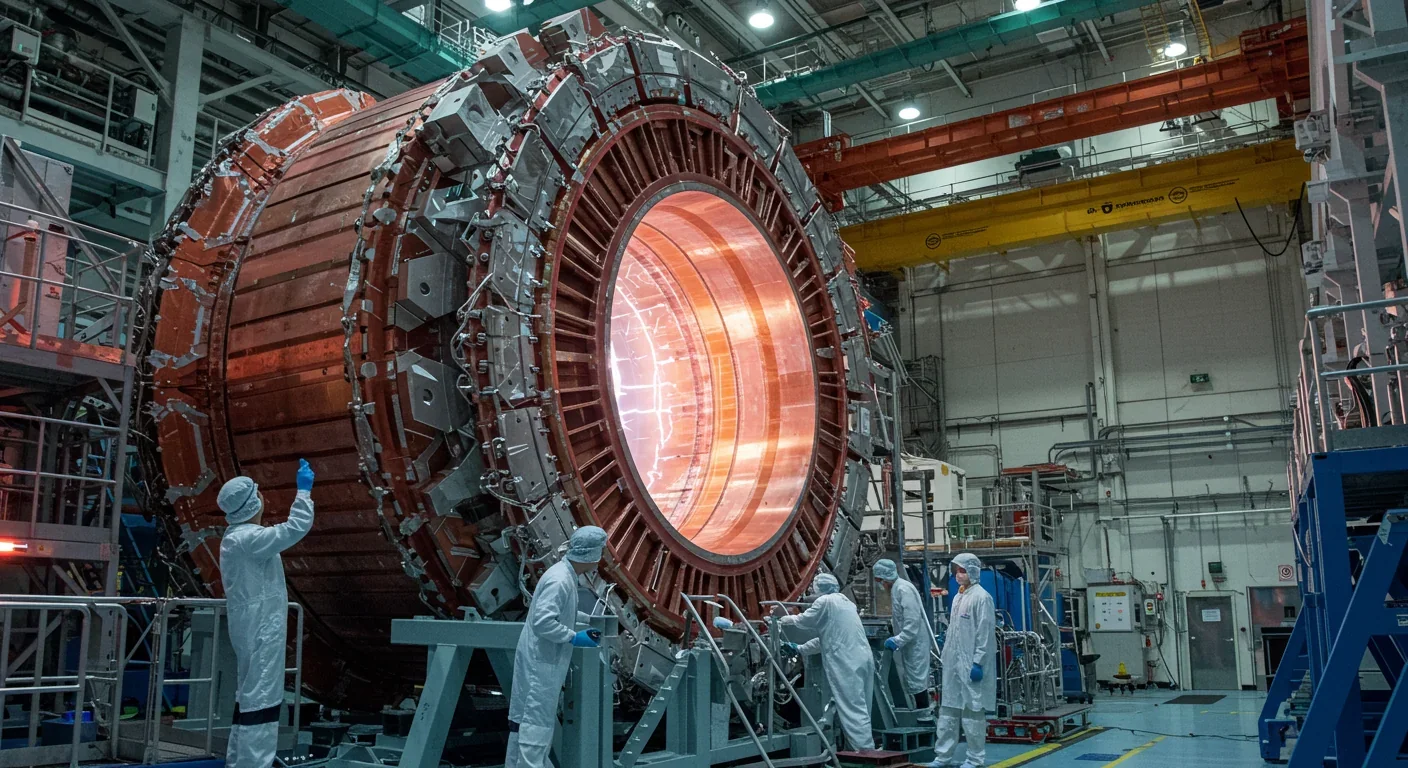
Recent breakthroughs in fusion technology—including 351,000-gauss magnetic fields, AI-driven plasma diagnostics, and net energy gain at the National Ignition Facility—are transforming fusion propulsion from science fiction to engineering frontier. Scientists now have a realistic pathway to accelerate spacecraft to 10% of light speed, enabling a 43-year journey to Alpha Centauri. While challenges remain in miniaturization, neutron management, and sustained operation, the physics barriers have ...

Epigenetic clocks measure DNA methylation patterns to calculate biological age, which predicts disease risk up to 30 years before symptoms appear. Landmark studies show that accelerated epigenetic aging forecasts cardiovascular disease, diabetes, and neurodegeneration with remarkable accuracy. Lifestyle interventions—Mediterranean diet, structured exercise, quality sleep, stress management—can measurably reverse biological aging, reducing epigenetic age by 1-2 years within months. Commercial ...

Data centers consumed 415 terawatt-hours of electricity in 2024 and will nearly double that by 2030, driven by AI's insatiable energy appetite. Despite tech giants' renewable pledges, actual emissions are up to 662% higher than reported due to accounting loopholes. A digital pollution tax—similar to Europe's carbon border tariff—could finally force the industry to invest in efficiency technologies like liquid cooling, waste heat recovery, and time-matched renewable power, transforming volunta...

Humans are hardwired to see invisible agents—gods, ghosts, conspiracies—thanks to the Hyperactive Agency Detection Device (HADD), an evolutionary survival mechanism that favored false alarms over fatal misses. This cognitive bias, rooted in brain regions like the temporoparietal junction and medial prefrontal cortex, generates religious beliefs, animistic worldviews, and conspiracy theories across all cultures. Understanding HADD doesn't eliminate belief, but it helps us recognize when our pa...

The bombardier beetle has perfected a chemical defense system that human engineers are still trying to replicate: a two-chamber micro-combustion engine that mixes hydroquinone and hydrogen peroxide to create explosive 100°C sprays at up to 500 pulses per second, aimed with 270-degree precision. This tiny insect's biochemical marvel is inspiring revolutionary technologies in aerospace propulsion, pharmaceutical delivery, and fire suppression. By 2030, beetle-inspired systems could position sat...
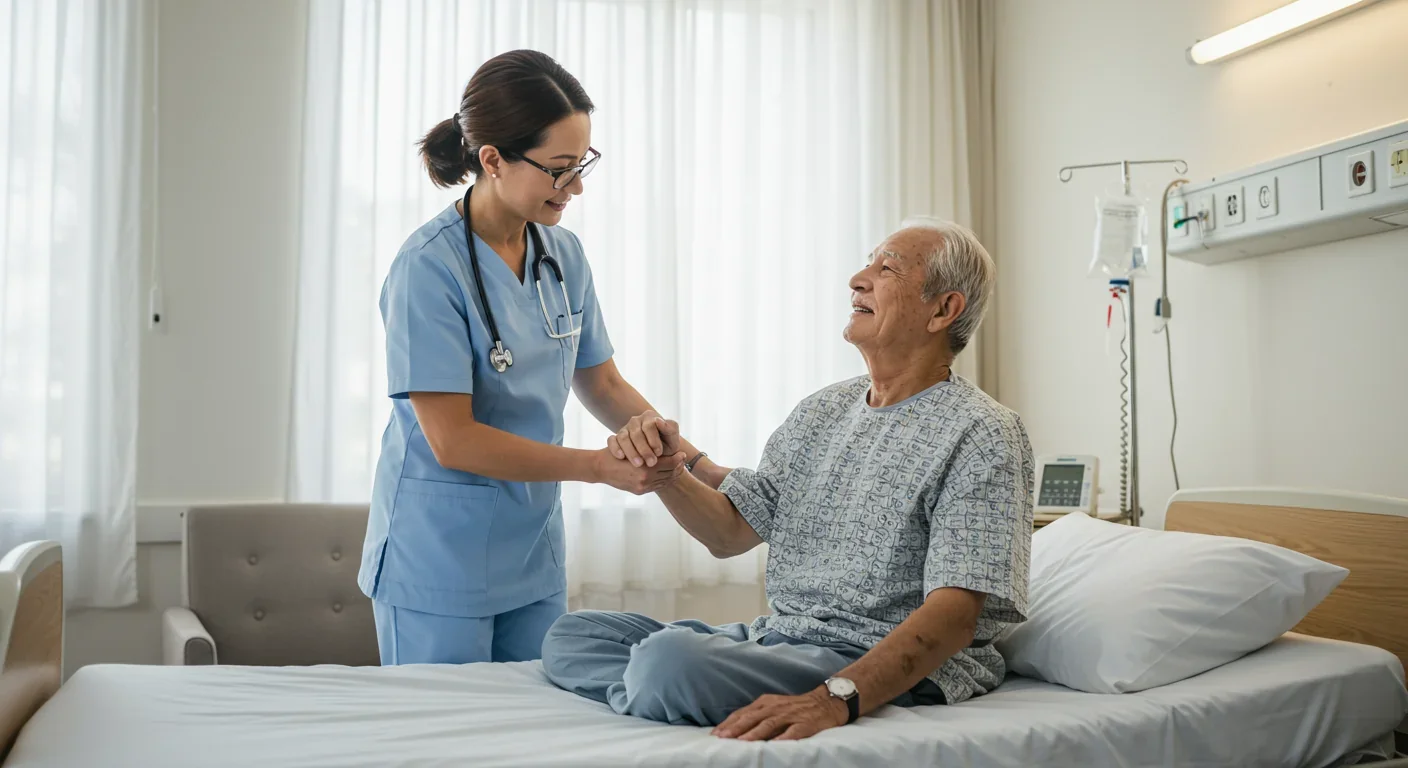
The U.S. faces a catastrophic care worker shortage driven by poverty-level wages, overwhelming burnout, and systemic undervaluation. With 99% of nursing homes hiring and 9.7 million openings projected by 2034, the crisis threatens patient safety, family stability, and economic productivity. Evidence-based solutions—wage reforms, streamlined training, technology integration, and policy enforcement—exist and work, but require sustained political will and cultural recognition that caregiving is ...

Every major AI model was trained on copyrighted text scraped without permission, triggering billion-dollar lawsuits and forcing a reckoning between innovation and creator rights. The future depends on finding balance between transformative AI development and fair compensation for the people whose work fuels it.